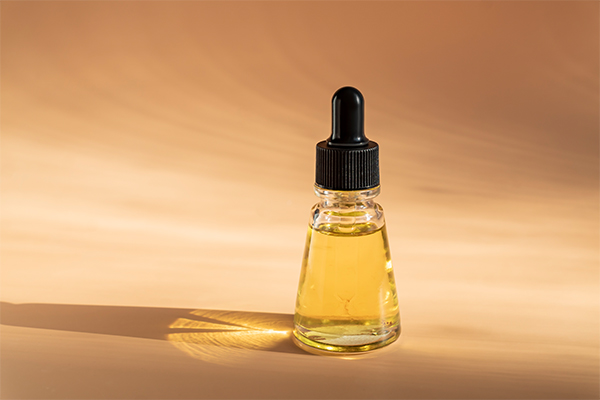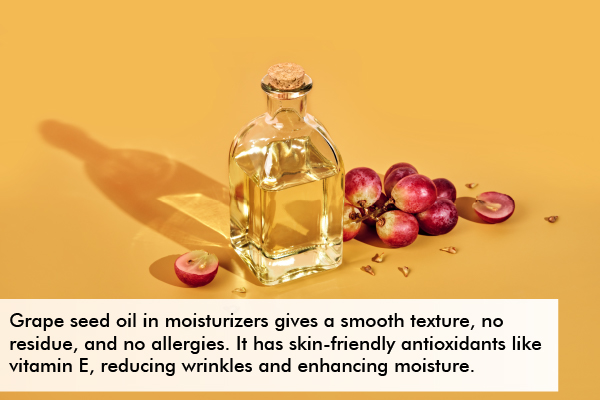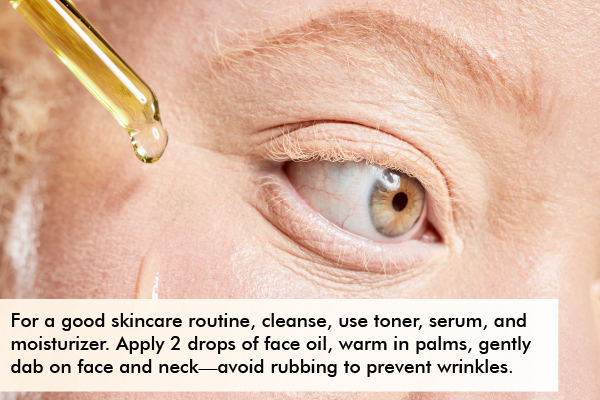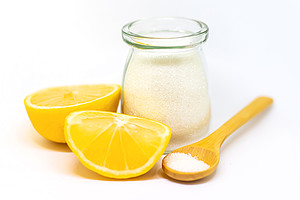Face oils have risen in popularity over the past few years, but you might wonder whether they are worth the hype.

Several skin-related researches have supported the use of face oils. When moisturizing the skin, creams or serums can used, but did you know face oils can effectively moisturize the skin as well?
The human skin comprises lipids and oils to prevent water loss and keep it nourished and hydrated. However, dry skin goes arid as oil production decreases.
Face oils’ emollient and occlusive nature adds moisture to the skin and locks it in. Additionally, they enhance the skin’s overall health.
Continue reading to learn more.
Article Contents
Can Face Oils Effectively Moisturize the Skin?
According to clinical studies, face oils are absorbed in the skin as if the skin produces it naturally. They have hydrating and reparative effects on the skin.
It is recommended to apply face oils after moisturizing your skin to keep the moisture in.
Commercial moisturizers contain oils such as grape seed (1), jojoba (2), castor (3), wheat gram (3), coconut (4), argan (5), and marula oil (6). They moisturize the skin by restoring its hydration (7).
Face oils act as occlusives and emollients. Their occlusivity originates from their ability to preserve the skin barrier and prevent water loss.
Their ability to penetrate the skin’s upper layer makes them beneficial for the skin. They deliver the nutrients where they are needed the most.
How to Choose Face Oils Based on Your Skin Type?
Every skin is unique with different needs, and there’s a face oil for every skin type.
Face Oils for Dry Skin
Face oils that strengthen the skin barrier by creating a film are suitable for dry skin. They keep the moisture in and prevent its loss. They penetrate deep into the skin, providing hydration.
1. Coconut oil
Virgin coconut oil is derived from fresh and mature coconut kernel. It is a processed natural oil used in moisturizers in tropical regions.
Virgin coconut oil improves symptoms of skin disorders by soothing and moisturizing the skin (4)(8). It also softens and moisturizes the skin and pores (9).
Due to its safety and effectiveness, coconut oil acts as a therapeutic moisturizer for mild to moderate xerosis (8).
2. Argan oil
According to researchers, argan oil moisturizes dry skin effectively. It restores the skin barrier and improves its moisture-holding ability.
Applying argan oil topically enhances skin hydration and elasticity by restoring the skin’s barrier function. It also improves the skin’s water-holding ability (5).
3. Grape seed oil

Grape seed oil is used in moisturizing products; it provides a soft texture without leaving remnants or causing allergic reactions (1).
Grape seed oil contains antioxidants that are beneficial for the skin. One of them is vitamin E, which reduces wrinkles, moisturizes the skin, and improves its elasticity (10).
Face Oils for Oily Skin
Face oils can be an excellent choice for oily skin. People with oily skin might avoid face oils for fear of a more oily texture. However, face oils complement the skin’s natural oils and balance oil production.
1. Jojoba oil
Similar to sebum, jojoba oil moisturizes the skin naturally. It can penetrate the skin deeply within minutes.
Jojoba oil is a humectant that creates a protective cover around the skin to moisturize and keep it locked in (11).
Jojoba oil is used widely in the cosmetic industry (2).
2. Marula oil
Marula oil restores the skin’s moisture. Its lightweight nature allows easy skin penetration and moisturization.
Moreover, its high fatty acid content prevents skin water loss and maintains moisture levels (6).
Face Oils for Dry, Oily, and Sensitive Skin
Castor oil and wheat germ face oil can be used for dry, oily, and sensitive skin.
1. Castor oil
Castor oil is abundant in fatty acids that promote skin softness and smoothness. It hydrates, moisturizes, cleanses, and supports healthy skin tissues and pores (3).
2. Wheat germ oil
Wheat germ oil is obtained from the germ of wheat kernels. It is high in octacosanol and vitamin E. It also contains fatty acids, such as palmitic acid, linolenic acid, linoleic acid, and palmitic acid.
Wheat germ oil moisturizes tissues, and its antioxidant properties prevent free radical damage. It naturally has SPF 20 (3).
How to Apply Face Oils

Follow these steps to apply face oils:
- Cleanse your face gently and thoroughly to remove buildup and dirt.
- Apply toner, serum, moisturizer, etc. (your usual skincare routine). (Remember, face oil must be the last step in your routine.)
- Dispense 2 drops of face oil on your palm. Rub your palms together to warm the oil a little.
- Dab the oil onto your face. Avoid rubbing it, as it may lead to premature wrinkles.
- Apply the oil to your neck as well.
Additional Tips for Using Face Oils
Follow these tips when using face oils:
- Apply a water-based product first and then apply a face oil.
- Avoid rubbing the face oil on your skin as it might damage your pores and prevent oil absorption. Instead, gently press for maximum results.
- You can also use different face oils together for added benefits.
- You can mix your face oil with a moisturizer to increase its potency and get glowing skin.
- You can apply face oils instead of eye creams for natural and organic results. The area under the eye is delicate, and a simple dab of face oil will give you instant hydration.
- You can hydrate your lashes, lips, and brows with face oils.
General Queries
Can face oils be applied daily?
Yes, daily application of face oils can have multiple benefits for your skin.
Do face oils clog pores?
The chances of face oils clogging the pores are meager as they are lightweight, dry quickly, and absorbed readily.
Oleic and linoleic acids are two primary fatty acids used in face oils. Oleic acid (an omega-9) is richer and thicker, whereas linoleic acid (an omega-6) is thin and lightweight with absorbable essential fatty acids. Their ratio determines their absorption rate, skin feel, and suitability for acne-prone or oily skin.
Final Word
Face oils have excellent absorption quality for all skin types due to their lightweight nature. According to researchers, oils such as grapeseed oil, castor oil, coconut oil, jojoba oil, argan oil, wheat germ oil, and marula oil moisturize oily, dry, and sensitive skin.
References
- Martin ME, Grao-Cruces E, Millan-Linares MC, Montserrat-de la Paz S. Grape (vitis vinifera L.) seed oil: A functional food from the winemaking industry. Foods (Basel, Switzerland). September 25, 2020. https://www.ncbi.nlm.nih.gov/pmc/articles/PMC7599587/.
- (PDF) a comparative examination of the quality of jojoba … – researchgate. https://www.researchgate.net/publication/329561484/.
- Goyal A, Sharma A, Kaur J, et al. Bioactive-based cosmeceuticals: An update on emerging trends. Molecules (Basel, Switzerland). January 27, 2022. https://www.ncbi.nlm.nih.gov/pmc/articles/PMC8837976/.
- 4.Pham TL-B, Thi TT, Nguyen HT-T, Lao TD, Binh NT, Nguyen QD. Anti-aging effects of a serum based on coconut oil combined with deer antler stem cell extract on a mouse model of Skin aging. Cells. February 9, 2022. https://www.ncbi.nlm.nih.gov/pmc/articles/PMC8870445/.
- Lin T-K, Zhong L, Santiago JL. Anti-inflammatory and skin barrier repair effects of topical application of some plant oils. MDPI. December 27, 2017. https://www.mdpi.com/1422-0067/19/1/70.
- Author links open overlay panelBaatile Komane a, a, b, et al. Safety and efficacy of Sclerocarya Birrea (a.rich.) Hochst (marula) oil: A clinical perspective. Journal of Ethnopharmacology. October 31, 2015. https://www.sciencedirect.com/science/article/abs/pii/S0378874115301963?via%3Dihub.
- Kapoor S, Saraf S. Assessment of viscoelasticity and hydration effect of herbal moisturizers using bioengineering techniques. Pharmacognosy magazine. October 2010. https://www.ncbi.nlm.nih.gov/pmc/articles/PMC2992143/.
- Varma SR, Sivaprakasam TO, Arumugam I, et al. in vitro anti-inflammatory and skin protective properties of virgin coconut oil. Journal of traditional and complementary medicine. January 17, 2018. https://www.ncbi.nlm.nih.gov/pmc/articles/PMC6335493/.
- Goyal A, Sharma A, Kaur J, et al. Bioactive-based cosmeceuticals: An update on emerging trends. Molecules (Basel, Switzerland). January 27, 2022. https://www.ncbi.nlm.nih.gov/pmc/articles/PMC8837976/.
- (PDF) the effect of antioxidant of grapeseed oil as skin … – researchgate. https://www.researchgate.net/publication/335964313/.
- Jojoba. Jojoba – an overview | ScienceDirect Topics. https://www.sciencedirect.com/topics/agricultural-and-biological-sciences/jojoba.







